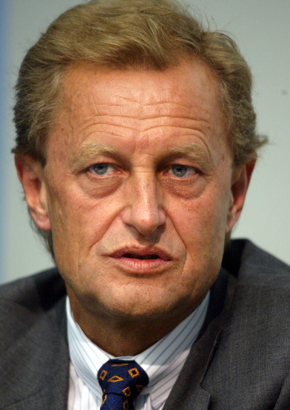VIPsight - October 2011
COMPANIES
Changes in the indices
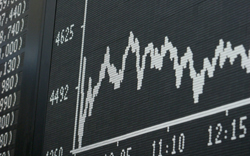 With effect from 19 September, there were changes in the MDAX and TECDAX. Thus, the DIY chain Praktiker, crane manufacturer Demag Cranes and real-estate specialist IVG Immobilien left the MDAX, while diesel-engine manufacturer Deutz, robotics expert KUKA and property company GSW Immobilien joined it. Praktiker and IVG Immobilien went down to the SDAX, but Demag Cranes was classified in the Prime Standard due to the small free float. Onto the TECDAX came social-media provider Xing and software group PSI. Roth & Rau and Phoenix Solar went to the Prime Standard.
With effect from 19 September, there were changes in the MDAX and TECDAX. Thus, the DIY chain Praktiker, crane manufacturer Demag Cranes and real-estate specialist IVG Immobilien left the MDAX, while diesel-engine manufacturer Deutz, robotics expert KUKA and property company GSW Immobilien joined it. Praktiker and IVG Immobilien went down to the SDAX, but Demag Cranes was classified in the Prime Standard due to the small free float. Onto the TECDAX came social-media provider Xing and software group PSI. Roth & Rau and Phoenix Solar went to the Prime Standard.
VW has to wait longer for Porsche
 Two steps forward, one step back; that’s how it goes at Volkswagen. On the one hand, in the last week of September the European Commission unconditionally nodded through the merger of MAN and VW. So the Wolfsburgers are free to to merge the traditional Munich company with VW subsidiary Scania under the umbrella of its own truck business and incorporate MAN into the Group as eleventh brand. VW had bought 30 percent of MAN’s shares in spring, and submitted a mandatory offer to MAN shareholders in May. With the release, VW will in future hold 55.9 percent of the voting rights and 53.7 percent of the share capital of the commercial-vehicle giant, which is also listed on the DAX. The merger with sports-car manufacturer Porsche was originally envisaged for the end of the year, but the original schedule can no longer be maintained. Legal hurdles are the reason given. In the USA an action is pending against Porsche Automobil Holding. In it the group, former Porsche CEO Wendelin Wiedeking and former CFO Holger Härter are accused by U.S. funds of having given false information and manipulated shares in the course of the planned takeover of VW by Porsche. The claims, rejected in the first-instance proceedings, are for two billion euros. In September it also became known that complaints might be filed in Germany too, including an action by a Frankfurt law firm on behalf of three foreign investors with a claim value of €100 million. Currently a lawsuit is already pending in Stuttgart, with a claim value of €3.1 million, which will not be settled until 2012. In the event of a failed merger, VW and Porsche had granted each other mutual put and call options, i.e. pre-emptive rights. From 2013, and until 2015 at the latest, VW could therefore buy up the operating business, which is located in Porsche AG, piecemeal. As a useful side effect, the regulatory burden would remain with Porsche Holding. VW has already announced that the revaluation of the purchase option in the Wolfsburg balance-sheet is likely to lead to positive earnings in the financial results. Porsche would instead likely be a burden, however. VW currently owns 49.9 percent of Porsche AG’s shares, for which €3.9 billion were paid. As early as next year, both sides want to achieve possible synergies of 700 million euros.
Two steps forward, one step back; that’s how it goes at Volkswagen. On the one hand, in the last week of September the European Commission unconditionally nodded through the merger of MAN and VW. So the Wolfsburgers are free to to merge the traditional Munich company with VW subsidiary Scania under the umbrella of its own truck business and incorporate MAN into the Group as eleventh brand. VW had bought 30 percent of MAN’s shares in spring, and submitted a mandatory offer to MAN shareholders in May. With the release, VW will in future hold 55.9 percent of the voting rights and 53.7 percent of the share capital of the commercial-vehicle giant, which is also listed on the DAX. The merger with sports-car manufacturer Porsche was originally envisaged for the end of the year, but the original schedule can no longer be maintained. Legal hurdles are the reason given. In the USA an action is pending against Porsche Automobil Holding. In it the group, former Porsche CEO Wendelin Wiedeking and former CFO Holger Härter are accused by U.S. funds of having given false information and manipulated shares in the course of the planned takeover of VW by Porsche. The claims, rejected in the first-instance proceedings, are for two billion euros. In September it also became known that complaints might be filed in Germany too, including an action by a Frankfurt law firm on behalf of three foreign investors with a claim value of €100 million. Currently a lawsuit is already pending in Stuttgart, with a claim value of €3.1 million, which will not be settled until 2012. In the event of a failed merger, VW and Porsche had granted each other mutual put and call options, i.e. pre-emptive rights. From 2013, and until 2015 at the latest, VW could therefore buy up the operating business, which is located in Porsche AG, piecemeal. As a useful side effect, the regulatory burden would remain with Porsche Holding. VW has already announced that the revaluation of the purchase option in the Wolfsburg balance-sheet is likely to lead to positive earnings in the financial results. Porsche would instead likely be a burden, however. VW currently owns 49.9 percent of Porsche AG’s shares, for which €3.9 billion were paid. As early as next year, both sides want to achieve possible synergies of 700 million euros.
Siemens defies the financial crisis
 Because of the highly volatile financial markets, Siemens has postponed the IPO of its light-bulb subsidiary Osram, announced for autumn. In addition, because of the uncertain economic situation of the French banks the conglomerate withdrew deposits with a volume of around 500 million euros from an unnamed major French bank, and paid the money into the European Central Bank (ECB). Besides car manufacturers VW, BMW and Daimler, Siemens is the only German DAX group which has for almost a year had a full banking license and can therefore keep a separate account at the ECB. Positive side effect: the deposit with the ECB brings not only more security but also higher interest rates.
Because of the highly volatile financial markets, Siemens has postponed the IPO of its light-bulb subsidiary Osram, announced for autumn. In addition, because of the uncertain economic situation of the French banks the conglomerate withdrew deposits with a volume of around 500 million euros from an unnamed major French bank, and paid the money into the European Central Bank (ECB). Besides car manufacturers VW, BMW and Daimler, Siemens is the only German DAX group which has for almost a year had a full banking license and can therefore keep a separate account at the ECB. Positive side effect: the deposit with the ECB brings not only more security but also higher interest rates.
Fraport AG and Siemens bidding in Spain
The airport operator Fraport and the conglomerate Siemens have sought Spanish partners to bid in two separate consortia for the concessions for the two airports of Madrid-Barajas and Barcelona-El Prat. Siemens has teamed up with Spanish construction giant FCC and Changi Airport Group from Singapore, and Fraport with construction company Acciona. With an annual passenger volume of 50 million (Madrid) and 29 million (Barcelona), they are among the world’s largest airports. As a sales price the Madrid government is targeting five billion euros. There are seven bidding consortia altogether.
Qatar plans to invest in EADS
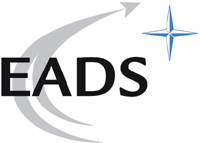 The Emirate of Qatar may soon have shares in EADS. The head of the State fund Qatar Holding has indicated an interest in joining the European Aeronautic Defence and Space Company (EADS). Currently, the fund has eight billion euros committed in Europe, especially in Germany, with holdings in VW, Porsche and Hochtief. Berlin and Paris initially signaled reservations about bringing Qatar into EADS. Daimler has been trying for months to sell at least 7.5 percent of Airbus’s parent, but without having to give up industrial management. Although the shares are currently in a group of banks, even after a possible sale the automaker will still hold 22.5 percent of the voting rights.
The Emirate of Qatar may soon have shares in EADS. The head of the State fund Qatar Holding has indicated an interest in joining the European Aeronautic Defence and Space Company (EADS). Currently, the fund has eight billion euros committed in Europe, especially in Germany, with holdings in VW, Porsche and Hochtief. Berlin and Paris initially signaled reservations about bringing Qatar into EADS. Daimler has been trying for months to sell at least 7.5 percent of Airbus’s parent, but without having to give up industrial management. Although the shares are currently in a group of banks, even after a possible sale the automaker will still hold 22.5 percent of the voting rights.
Buhlmann's Corner
Corporate Governance tests auditors
 Last month, corporate governance struck hard at the German auditors’ organization. The self-regulatory oversight body had changed the voting rules, and already there was a landslide in the election results. While the “Big Three” – the world’s largest auditor of the “Big Four” is still upcoming in Germany – had so far set the tone, now the smaller firms are “in power” for technical clarification and political lobbying.
Last month, corporate governance struck hard at the German auditors’ organization. The self-regulatory oversight body had changed the voting rules, and already there was a landslide in the election results. While the “Big Three” – the world’s largest auditor of the “Big Four” is still upcoming in Germany – had so far set the tone, now the smaller firms are “in power” for technical clarification and political lobbying.
Sure, it’s good if people can switch both auditors and audit brands painlessly (as I first called for after a bank failure in 1977). And certainly it is right for certification work not to be disturbed by anything else. But ever-cheaper certification cannot improve its value! The auditors deserve pity anyway. If they save a company with timely pressure, no one talks about it. Conversely, if something goes wrong, they are always partly to blame. Onlookers forget time and again that certification is not a seal of approval but only attests legality (even of a march into bankruptcy). Whoever’s going bankrupt in line with statutory requirements can claim certification, but if you’ve been successful with research money you often have no chance, for lack of so-called “survival probability”.
If unworldly Europeans now cut back the consulting business, then the same thing will happen as does in AGM decisions: the voting outcome gets decided in the back room and not in healthy investor interests; but uncertified, it’s bound to be dirt cheap. Anyone now expecting the second certification (also formerly known as P-certification) to produce anything more than charges should not look to France but instead dimly remember that Deutsche Telekom had exactly this double certification in its wild old days. Fat lot of use it was to the investors!
The Osram-IPO was cancelled - an opportunity for corporate governance! Give the shareholder his property and give each Siemens share a proportion of Osram shares as dividend in kind, so the shareholders accept it and give expression to their joy at the ensuing Osram capital increase. Thus, in this Siemens will set new signs and follow successful models (such as Lanxess).
ACTIONS CORNER
 The adidas subsidiary Reebok has, according to the U.S. FTC, exaggerated with deceptive advertising for its allegedly muscle-activating shoes and must therefore pay compensation to deceived customers. In the U.S., the sports-goods manufacturer settled with the trade authority to get rid of the accusation for a payment of $25 million (€18.5 million). Reebok had advertised that with Easytones and RunTones you get beautiful legs and a firm bottom without great effort.
The adidas subsidiary Reebok has, according to the U.S. FTC, exaggerated with deceptive advertising for its allegedly muscle-activating shoes and must therefore pay compensation to deceived customers. In the U.S., the sports-goods manufacturer settled with the trade authority to get rid of the accusation for a payment of $25 million (€18.5 million). Reebok had advertised that with Easytones and RunTones you get beautiful legs and a firm bottom without great effort.
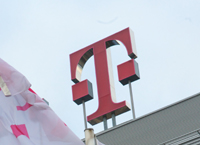 After the U.S. Department of Justice, Sprint Nextel has now also filed a lawsuit against the planned $39 billion Deutsche Telekom sale of T-Mobile to AT&T. The rival mobile operator expects the transaction, uniting the second- and fourth-largest providers in the U.S., to distort competition. It would increase prices and decrease willingness to innovate. Sprint is by a fair margin number three on the U.S. mobile market. Previously, the U.S. Justice Department had filed a lawsuit against the transaction with the relevant competition authorities.
After the U.S. Department of Justice, Sprint Nextel has now also filed a lawsuit against the planned $39 billion Deutsche Telekom sale of T-Mobile to AT&T. The rival mobile operator expects the transaction, uniting the second- and fourth-largest providers in the U.S., to distort competition. It would increase prices and decrease willingness to innovate. Sprint is by a fair margin number three on the U.S. mobile market. Previously, the U.S. Justice Department had filed a lawsuit against the transaction with the relevant competition authorities.
AT&T does not want to bow to the resistance of the U.S. Department of Justice without a fight. To convince the U.S. government about the $39 billion (€29 billion) sale of Deutsche Telekom subsidiary T-Mobile USA to the U.S. telecommunications group, both parties pushed for an early trial at the highly anticipated first court hearing in the case on 21 September. Among the lawyers hired are some of the most famous in the country, and many have long careers in major U.S. competition authorities behind them. An out-of-court settlement is still conceivable, however, says AT&T.
 SAP has averted the 1.3 billion payment to Oracle in the theft trial. A court in California supported the German software giant on 1 September and found the fine demanded by its rival “quite excessive”. The Walldorf-based firm then stated in mid September that $20 million would be paid in order to shelve the criminal proceedings. The District Court had approved the settlement, SAP announced on 15 September. Previously, SAP had demanded a reduction of the penalty to a maximum of $409 million. The German software giant SAP pled guilty as the parent company of TomorrowNow in a total of twelve cases.
SAP has averted the 1.3 billion payment to Oracle in the theft trial. A court in California supported the German software giant on 1 September and found the fine demanded by its rival “quite excessive”. The Walldorf-based firm then stated in mid September that $20 million would be paid in order to shelve the criminal proceedings. The District Court had approved the settlement, SAP announced on 15 September. Previously, SAP had demanded a reduction of the penalty to a maximum of $409 million. The German software giant SAP pled guilty as the parent company of TomorrowNow in a total of twelve cases.
AGM Dates
| Company | Event | Date | Time | Place | Address | Published on |
| MDAX | ||||||
| Kabel Deutschland | ord. AGM | 13.10.2011 | 11:00 | 80333 München | Max-Joseph-Str. 5, Haus der Bayerischen Wirtschaft | 06.09.2011 |
| The Agenda for the ordinary AGM of Kabel Deutschland Holding AG starts with the usual items, like presentation of annual accounts and discharge to the company bodies. In future, individualized figures on executive compensation will be disclosed. The AGM resolution of 15.03.2010 is accordingly to be cancelled. | ||||||
Politics
EU Commission wants a transaction tax
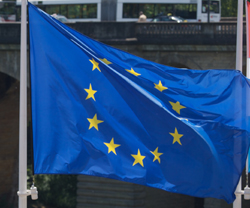 EU Commission President José Manuel Barroso is pushing for a tax on financial transactions. In the European Parliament, he announced at the end of September that “this tax can contribute 55 billion euros a year”. The financial crisis had already cost the EU countries €4600 billion in guarantees. Now it was time for the financial industry to pay back the money. The Commission plans to submit a draft law which aims to apply the tax as from 2014 to the purchase and sale of securities, bonds, equities and derivatives between banks, insurance companies and other financial houses in the 27 EU States - at a rate of 0.1 percent on stock and bond transactions and 0.01 percent on derivatives. The retail business will be exempt. EU Tax Commissioner Algirdas Semeta was convinced that the G20 countries too would recognize the benefits of the tax. Britain strongly opposes the levy, while Germany and France argue in principle for its introduction. With the tax, especially automated business as well as daily trading would lose some appeal.
EU Commission President José Manuel Barroso is pushing for a tax on financial transactions. In the European Parliament, he announced at the end of September that “this tax can contribute 55 billion euros a year”. The financial crisis had already cost the EU countries €4600 billion in guarantees. Now it was time for the financial industry to pay back the money. The Commission plans to submit a draft law which aims to apply the tax as from 2014 to the purchase and sale of securities, bonds, equities and derivatives between banks, insurance companies and other financial houses in the 27 EU States - at a rate of 0.1 percent on stock and bond transactions and 0.01 percent on derivatives. The retail business will be exempt. EU Tax Commissioner Algirdas Semeta was convinced that the G20 countries too would recognize the benefits of the tax. Britain strongly opposes the levy, while Germany and France argue in principle for its introduction. With the tax, especially automated business as well as daily trading would lose some appeal.
Banks should get fit faster
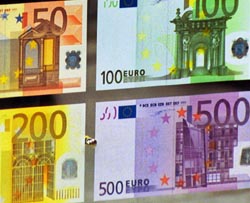 Nine banks failed the most recent stress test. 16 more just scraped through. While the failures must get money in the financial markets by the end of the year, the bare passes are so far free to increase their equity by April 2012. Now European banking watchdogs are pushing for seven Spanish, two German, two Greek and two Portuguese banks as well as one each from Italy, Slovenia and Cyprus to stock up with fresh capital more quickly. Among the banks is also the HSH Nordbank. While the 16 banks should try to obtain new funds through the financial market first, EU internal-market Commissioner Michel Barnier does not rule it out that some banks may need government assistance. France votes for the €440 billion-euro rescue fund EFSF to act in such cases.
Nine banks failed the most recent stress test. 16 more just scraped through. While the failures must get money in the financial markets by the end of the year, the bare passes are so far free to increase their equity by April 2012. Now European banking watchdogs are pushing for seven Spanish, two German, two Greek and two Portuguese banks as well as one each from Italy, Slovenia and Cyprus to stock up with fresh capital more quickly. Among the banks is also the HSH Nordbank. While the 16 banks should try to obtain new funds through the financial market first, EU internal-market Commissioner Michel Barnier does not rule it out that some banks may need government assistance. France votes for the €440 billion-euro rescue fund EFSF to act in such cases.
Getting a better picture of credit risks
Generally there are two common methods under Basel II by which banks in Europe assess their credit risks. In the standard procedure, which U.S. banks also apply, the credit risks are evaluated by credit-rating agencies. If they find a high probability of default, the banks must deposit more equity. With the internal rating used by most European banks, however, the credit houses assess their default risk themselves. Since this method is strongly criticized from the U.S. side and restricts the comparability of banks’ balance sheets, the Basel Committee wants to provide more transparency. It aims to develop a test procedure that is much stricter than in the past, reports Financial Times Deutschland. Plans are for spot checks to compare banks’ risk processes. The desired comparability of capital and liquidity parameters is crucial for the credibility of the forthcoming Basel II regulations, according to Stefan Walter, Secretary-General of the Basel Committee.
EU considers expropriating bank shareholders
 It was mainly the taxpayers who were asked to pay for the financial crisis. Now EU internal-market Commissioner Michel Barnier wants a draft directive to ensure that in future shareholder and creditor rights in distressed banks may be significantly limited legally. The draft, reports Handelsblatt, goes so far that in the extreme case the shareholders can be expropriated. Barnier further urges that EU countries’ national banking supervisors must have the right to write off or delete stock. A debt cut to the detriment of a bank’s creditors is also provided for. In addition, the management of a damaged bank could be replaced and the institution radically restructured. The draft also states that parts of the balance could be shifted to a bridge bank or business units sold without shareholders’ approval being required. In addition, an insolvency should enable shareholder rights to be overridden, and the remedies available against a governmental reorganization could be significantly restricted. Moreover, all EU countries should require their banks to pay into an emergency fund which would after ten years have accumulated an amount equal to at least 0.6 percent of the savings deposits in the country covered by State deposit insurance. Barnier will officially submit his draft in November. EU takes aim at auditors
It was mainly the taxpayers who were asked to pay for the financial crisis. Now EU internal-market Commissioner Michel Barnier wants a draft directive to ensure that in future shareholder and creditor rights in distressed banks may be significantly limited legally. The draft, reports Handelsblatt, goes so far that in the extreme case the shareholders can be expropriated. Barnier further urges that EU countries’ national banking supervisors must have the right to write off or delete stock. A debt cut to the detriment of a bank’s creditors is also provided for. In addition, the management of a damaged bank could be replaced and the institution radically restructured. The draft also states that parts of the balance could be shifted to a bridge bank or business units sold without shareholders’ approval being required. In addition, an insolvency should enable shareholder rights to be overridden, and the remedies available against a governmental reorganization could be significantly restricted. Moreover, all EU countries should require their banks to pay into an emergency fund which would after ten years have accumulated an amount equal to at least 0.6 percent of the savings deposits in the country covered by State deposit insurance. Barnier will officially submit his draft in November. EU takes aim at auditors
EU internal-market Commissioner Michel Barnier wants to ban auditors from offering consulting services in future. Through the separation of functions he wants to achieve greater independence of auditors. In addition, after nine years at most a company should change its auditor. Large corporations with revenues beyond the billion mark should submit their balance sheets to two companies for examination; moreover, in this joint-audit model one of the two audit companies should not be from the big four - a model already practised in France. Barnier would thus break up the oligopoly on the market. Currently the big four audit companies, PwC, KPMG, Ernst & Young and Deloitte, share about 90 percent of the European market. Mainly from Germany and the CDU and FDP deputies in the European Parliament, but also the audit companies themselves, serious criticism is hailing down on Barnier’s proposed law, which he will bring to the legislature in November.
More transparency in lobbying
Christian Lange, parliamentary secretary of the SPD parliamentary group, is calling for a three-point code of conduct for lobbyists in Germany. A lobby register is to be kept, in which all lobbyists will be entered, with name and type of activity. Information about the client, employees, contractors, funding sources and budgets should also be disclosable, and viewable online. For violations of the transparency obligation, fines up to €200,000 should be possible. In addition, he calls for a Code to bind the registered lobbyists to the principles of openness, transparency, honesty and integrity. Acceptance or refusal of this Code should also be made public in the register of lobbyists. To ensure that the use of consultants in the federal ministries is also transparent and understandable, Lange calls for a “legislative footprint”. A report should show if and when what consultants have made a significant contribution to the drafting of a bill. Lange calls on the administrations generally to show more restraint in the use of external consultants and to distinguish the interests of public-interest associations from profit-oriented actors. Lange’s third requirement is a code of honour for ex-ministers, as already exists in EU circles. Those who change sides, i.e. former ministers working for the lobbying side, should on the one hand keep to a certain transition period and on the other report their new jobs to the federal government.
People
Helmut Perlet is to be the new chairman of Allianz. The former Chief Financial Officer will replace Henning Schulte-Noelle, who is reaching the age limit of 70, in 2012. Europe’s biggest insurer refers only, without comment, to the fact that at the Annual General Meeting on 9 May 2012 a regular election of the Supervisory Board is due. Its members will then elect the chair.
With effect from 1 January 2012 Peter Willbrandt was appointed Aurubis CEO as successor to Bernd Drouven. With the 49-year-old, the supervisory board of Germany’s largest copper smelter on 28 September unanimously decided to follow an internal solution, which the employees welcomed. Drouven is leaving the company at the end of the year; the board is thus reduced from five members to four.
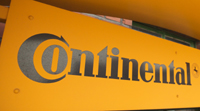 Elke Strathmann was appointed as Continental’s new head of personnel at the last Board meeting on 28 September. She will assume her office in the first quarter of 2012. Until then, the post is occupied by Heinz-Gerhard Wente, who remains responsible in the new year for the highly profitable ContiTech rubber division and for purchasing. 53 years old, she previously worked as personnel manager at Nestlé Deutschland in Frankfurt am Main.
Elke Strathmann was appointed as Continental’s new head of personnel at the last Board meeting on 28 September. She will assume her office in the first quarter of 2012. Until then, the post is occupied by Heinz-Gerhard Wente, who remains responsible in the new year for the highly profitable ContiTech rubber division and for purchasing. 53 years old, she previously worked as personnel manager at Nestlé Deutschland in Frankfurt am Main.
 At Demag Cranes, following the acquisition by Terex, alongside Burkhard Schuchmann with Professor Karlheinz Hornung, Robert J. Koehler, Herbert Meyer, Rudolf Rupprecht and Jens Tischendorf, all the other shareholder representatives also resigned from the Supervisory Board with effect from 23 September. The District Court of Düsseldorf, with effect from 24 September, court-appointed the independent consultants Axel Joachim Arendt and Oren G. Shaffer, Kevin A. Barr (Senior Vice President Human Resources at Terex), Michael W. Ernestus (investment banker at G.C. Andersen Partners), Brian J. Henry (Senior Vice President Finance and Business Development at Terex), as well as the lawyer Michael Leue of the law firm Bryan Cave LLP, to the body until the next Annual General Meeting. Elliott is not sending a Supervisory Board member. The hedge fund owns ten percent of the Düsseldorf crane manufacturer.
At Demag Cranes, following the acquisition by Terex, alongside Burkhard Schuchmann with Professor Karlheinz Hornung, Robert J. Koehler, Herbert Meyer, Rudolf Rupprecht and Jens Tischendorf, all the other shareholder representatives also resigned from the Supervisory Board with effect from 23 September. The District Court of Düsseldorf, with effect from 24 September, court-appointed the independent consultants Axel Joachim Arendt and Oren G. Shaffer, Kevin A. Barr (Senior Vice President Human Resources at Terex), Michael W. Ernestus (investment banker at G.C. Andersen Partners), Brian J. Henry (Senior Vice President Finance and Business Development at Terex), as well as the lawyer Michael Leue of the law firm Bryan Cave LLP, to the body until the next Annual General Meeting. Elliott is not sending a Supervisory Board member. The hedge fund owns ten percent of the Düsseldorf crane manufacturer.
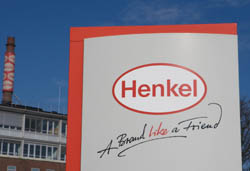 In Kathrin Menges, Henkel has appointed its first woman to its governing body. The only DAX Group with a woman as Supervisory Board chair, since September 2009, is thus setting another landmark in the advancement of women in time for its 135-year anniversary. The 46-year-old will be responsible for human resources on the board of Germany’s biggest consumer goods producers as from 1 October.
In Kathrin Menges, Henkel has appointed its first woman to its governing body. The only DAX Group with a woman as Supervisory Board chair, since September 2009, is thus setting another landmark in the advancement of women in time for its 135-year anniversary. The 46-year-old will be responsible for human resources on the board of Germany’s biggest consumer goods producers as from 1 October.
HOCHTIEF, searching for a new CFO, has headhunted Peter Sassenfeld from Ferrostaal. When the MBA (45) will take office is still open. He will succeed Burkhard Lohr, who after losing the defensive struggle against ACS is to leave the construction company on 18 October. Lohr had exercised his early-termination rights.
Hans Volkert Volckens is moving to IVG Immobilien as Chief Financial Officer. There he will run the central areas of Finance, Accounting & Taxes, Controlling and Legal & Compliance. Besides Volckens, Christian Kühni has also, since 1 October, filled out the governing body, alongside Wolfgang Schäfer. He takes over the function of spokesman. The Supervisory Board has appointed Kühni a full board member with the function of COO; he will be responsible for the operational units of the firm, which is going down the MDAX. Board spokesman Gerd Niesslein had earlier told the AGM of Germany’s largest publicly-traded commercial real-estate firm he did not want to extend his contract, expiring in October.
Frank Einhellinger is letting his contract at JENOPTIK, running until June 2012, expire. He wanted to “tackle new challenges”, but would “continue to provide advice” to the technology company, it was said. The Supervisory Board “regretted” Einhellinger’s decision. Michael Mertin (45) would, however, remain another five years at the helm, said the Thuringian TecDAX Group.
The Supervisory Board of Klöckner & Co has appointed Bill Partalis to the board. The American will in October become third board member, for the “Americas” segment, alongside CEO Gisbert Rühl and business-operations director Ulrich Becker. With the establishment of the new sector, the supervisory board is taking account of the increased importance of U.S. business through the acquisitions of Macsteel and Frefer.
 ProSiebenSat.1 Media has expanded the board by two, to five members. On 1 October the TV station group newly appointed Conrad Albert and Christian Wegner to the Board, so far including Thomas Ebeling (CEO) and Axel Salzmann (CFO). Albert is to head the newly created department of Legal Affairs, Distribution and Governmental & Regulatory Affairs; Wagner will assume responsibility for New Media & Diversification, vacant after the departure of Dan Marks, who left the company last year after only a few months. On 4 October, Andreas Bartl passed the baton to Joachim Kosack, as the MDAX-listed company announced on 27 September. Kosack is now head of drama, and since April also Co-Director of the Unterföhring-based broadcaster. After the surprise departure of Guido Bolten in early 2010 Bartl had taken over the management on an interim basis.
ProSiebenSat.1 Media has expanded the board by two, to five members. On 1 October the TV station group newly appointed Conrad Albert and Christian Wegner to the Board, so far including Thomas Ebeling (CEO) and Axel Salzmann (CFO). Albert is to head the newly created department of Legal Affairs, Distribution and Governmental & Regulatory Affairs; Wagner will assume responsibility for New Media & Diversification, vacant after the departure of Dan Marks, who left the company last year after only a few months. On 4 October, Andreas Bartl passed the baton to Joachim Kosack, as the MDAX-listed company announced on 27 September. Kosack is now head of drama, and since April also Co-Director of the Unterföhring-based broadcaster. After the surprise departure of Guido Bolten in early 2010 Bartl had taken over the management on an interim basis.
Campus
Supervisory-board pay up nine percent
 According to an analysis by Towers Watson, a total of eight DAX companies have used the 2011 AGM season to adjust the pay of supervisory-board members. Here, a stronger and long-term sustainability of the compensation was taken into account, as suggested in the German Corporate Governance Code. Last year supervisory-board members earned on average around 0.3 million euros, representing an increase of nine percent over the previous year. With the increase in compensation, companies were responding “not least to increased demands on supervisory activities,” according to the consultant. Towers Watson sees Ferdinand Piëch with €785,500 at the top, with Gerhard Cromme estimated at €584,000. At Fresenius Medical Care (138,000) and Deutsche Post (149,000), the supervisors earn the least.
According to an analysis by Towers Watson, a total of eight DAX companies have used the 2011 AGM season to adjust the pay of supervisory-board members. Here, a stronger and long-term sustainability of the compensation was taken into account, as suggested in the German Corporate Governance Code. Last year supervisory-board members earned on average around 0.3 million euros, representing an increase of nine percent over the previous year. With the increase in compensation, companies were responding “not least to increased demands on supervisory activities,” according to the consultant. Towers Watson sees Ferdinand Piëch with €785,500 at the top, with Gerhard Cromme estimated at €584,000. At Fresenius Medical Care (138,000) and Deutsche Post (149,000), the supervisors earn the least.
German board members at the top for liability
Germany, according to Noerr LLP, is the country in Europe with by far the largest exposure to loss for directors and Management and Supervisory Board members. According to Oliver Sieg of Noerr this applies to both the amount of damage claims and the loss frequency. Sieg finds banks, publicly controlled companies and companies in crisis to be particularly affected. An increasing number of cases were also in the public eye: currently there are claims in the hundreds of millions of dollars against ex-managers, especially in connection with the financial crisis.
The population distrusts managers
In a survey commissioned by Hostettler, Kramarsch & Partners among 1000 Germans, 70 percent of the population stated they perceived excessive bonus payments to managers as a system problem and did not assess excesses as individual cases. Only 22 percent are satisfied with the current legal framework. In the consultancy’s view, while German companies had complied with the new statutory regulations for the design of compensation schemes and to some extent even gone beyond that, it had not been possible to produce “an understanding of our economic system” in the population.
Cross-listings have no added value
For long, an overseas listing in the United States for German companies was at a premium. Favourable capital-market conditions and increased market capitalization were associated with it. A recent scientific study by the Justus-Liebig University of Giessen and the University of New Hampshire has looked at the motivation for the listing and delisting of German firms on the NYSE and the NASDAQ. The authors, Professor Dr. Wolfgang Bessler, Professor Fred R. Kaen, Philip Kurmann and Jan Zimmermann, note that a so-called cross-listing for German companies in the U.S. brought no significant advantages in terms of cost of capital or market capitalization. On the contrary, after simplification of the rules for withdrawing from the U.S. stock market many German companies gave up their cross-listing there. This trend was also favoured by amended German corporate-governance rules and the proliferation of alternative trading platforms. The full working paper, titled “The Listing and Delisting of German Firms on NYSE and NASDAQ: Were There Any Benefits?”, is available under http://ssrn.com/abstract=1928784.
More IR on the social Web
The University of Leipzig study “Investor relations 2.0 - An international benchmark study” examined the 30 leading companies in the benchmark indexes in Germany, the USA, Great Britain, France and Japan (DAX, DJIA, FTSE, CAC and Nikkei), and additionally the German indices MDAX, SDAX and TecDAX, on how these 280 companies adapt their investor-relations activities to new forms of communication on the Web and integrate social media like Facebook, Twitter, YouTube or SlideShare. Here, the German and U.S. companies were already investigated in 2009, so that the current study was designed as a long-term study. The most popular of the social media is consistently Twitter, followed by YouTube and Facebook. In Germany, particularly companies in the second and third ranks, i.e. from the MDAX, SDAX and TecDAX, expanded their activities in the field of social media. The actual way of using the new communication forms differs considerably, however. For instance, Walmart puts the shareholder meeting online and the German ElringKlinger offers a live chat with the CEO. The conclusion of the study sees the social media and the integration of new forms of communication into IR on the rise. The spearhead is formed by the U.S. blue-chips, while German companies are currently ahead of French, Japanese and British companies. The majority of the companies rely on multiple forms of social media and make their performances multimedia and interactive. However, networking and dialogue with shareholders often falls short.
AGM attendance decreases
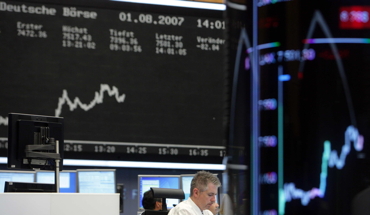 The shareholders of the largest German companies have in the past season tended to show lower interest in their company’s annual general meeting, says a summary by shareholder association Schutzgemeinschaft der Kapitalanleger (SdK). Although the average AGM attendance for the 30 DAX companies was slightly up at 56.45 percent, this slight gain was thanks to the two positive outliers adidas (up 11.26 percentage points) and Allianz (up 8.04 percentage points). At 15 DAX stocks attendance rates fell, at Henkel by 13.55 percentage points and at Metro by as much as 19.30 percentage points. After four years of rising attendance in the MDAX, the value went down by 0.86 percentage points in 2011 to an average attendance of 63.59 percent. In the TECDAX, the rate fell by as much as 6.4 percentage points to an average of 44.77 percent - a record low. Only in the SDAX did interest increase, to 64.22 percent, following a decline in the previous year by 3.24 percentage points. The trend thus reduces the duration of the meetings. On average, a DAX AGM took 7.04 hours, an MDAX one AGM 4.76 hours, a TECDAX one 4.11 hours and a SDAX one 3.66 hours. Against the backdrop of declining shareholder interest in the events of their company’s AGM, the SdK is calling on the German government to strengthen AGM attendance. One means is an attendance bonus. In this case, those shareholders who exercise their voting rights would be financially better off. According to the motto “property has its obligations,” this attendance bonus should concretely demonstrate non-voting with an “absence penalty”.
The shareholders of the largest German companies have in the past season tended to show lower interest in their company’s annual general meeting, says a summary by shareholder association Schutzgemeinschaft der Kapitalanleger (SdK). Although the average AGM attendance for the 30 DAX companies was slightly up at 56.45 percent, this slight gain was thanks to the two positive outliers adidas (up 11.26 percentage points) and Allianz (up 8.04 percentage points). At 15 DAX stocks attendance rates fell, at Henkel by 13.55 percentage points and at Metro by as much as 19.30 percentage points. After four years of rising attendance in the MDAX, the value went down by 0.86 percentage points in 2011 to an average attendance of 63.59 percent. In the TECDAX, the rate fell by as much as 6.4 percentage points to an average of 44.77 percent - a record low. Only in the SDAX did interest increase, to 64.22 percent, following a decline in the previous year by 3.24 percentage points. The trend thus reduces the duration of the meetings. On average, a DAX AGM took 7.04 hours, an MDAX one AGM 4.76 hours, a TECDAX one 4.11 hours and a SDAX one 3.66 hours. Against the backdrop of declining shareholder interest in the events of their company’s AGM, the SdK is calling on the German government to strengthen AGM attendance. One means is an attendance bonus. In this case, those shareholders who exercise their voting rights would be financially better off. According to the motto “property has its obligations,” this attendance bonus should concretely demonstrate non-voting with an “absence penalty”.
Investment professionals look to the Web
 From March to April the DVFA (German Association for Financial Analysis and Asset Management) together with Deutsche EuroShop asked 74 European investment professionals, including asset managers as well as buy- and sell-side equity analysts, about their use of new media. Compared to the traditional business media coverage in both print and digital form, which at least about 80 percent saw as an important source, about 15 percent of respondents said that they read news on blogs, message boards or social networks. But interest in traditional media messages available online increased. While only a few themselves write posts on blogs, social networks or message boards, for more than two-thirds of the respondents postings on these channels are a basis for further research. However, 86 percent assess the importance of this information as rather low. Among social networks Xing dominates, followed by LinkedIn, YouTube, Twitter and Facebook. Despite all the skepticism, all the same, 45 percent of respondents said that the new social media could probably have a greater role in investment decisions in the future.
From March to April the DVFA (German Association for Financial Analysis and Asset Management) together with Deutsche EuroShop asked 74 European investment professionals, including asset managers as well as buy- and sell-side equity analysts, about their use of new media. Compared to the traditional business media coverage in both print and digital form, which at least about 80 percent saw as an important source, about 15 percent of respondents said that they read news on blogs, message boards or social networks. But interest in traditional media messages available online increased. While only a few themselves write posts on blogs, social networks or message boards, for more than two-thirds of the respondents postings on these channels are a basis for further research. However, 86 percent assess the importance of this information as rather low. Among social networks Xing dominates, followed by LinkedIn, YouTube, Twitter and Facebook. Despite all the skepticism, all the same, 45 percent of respondents said that the new social media could probably have a greater role in investment decisions in the future.
Capital News
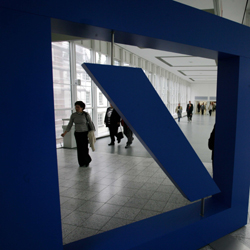 The Deutsche Bank has announced in a mandatory release under the Securities Trading Act that on 15 September it had passed the threshold of three percent of its own shares and now held 3.03 percent of outstanding shares. The papers were purchased in the spot market. The Bank intends to use the repurchased shares to meet obligations under stock-based compensation. The bank had lowered the variable components of employee compensation for the previous fiscal year and raised the fixed salaries.
The Deutsche Bank has announced in a mandatory release under the Securities Trading Act that on 15 September it had passed the threshold of three percent of its own shares and now held 3.03 percent of outstanding shares. The papers were purchased in the spot market. The Bank intends to use the repurchased shares to meet obligations under stock-based compensation. The bank had lowered the variable components of employee compensation for the previous fiscal year and raised the fixed salaries.
After the price drop in its shares, GAGFAH had by 4 October repurchased 75 million euros worth of its own shares. The real-estate group tried to induce investors troubled by exchange losses to accept the offer by threatening to take the shares off the stock market. A small free float makes deletion from the exchange list possible. A delisting is probably, from the Board’s perspective, in the best long-term interests of the company. The offer was not subject to the regulations of the German Takeover Act and has not been presented to BaFin.
Director's Dealings
| Company | Person | Function | Buy / Sell | Total value in Euro | Number of shares | Datum |
| ADVA Optical | Anthony Maher | SB-Head | B | 17.300 | 5.000 | 16.09.2011 |
| BASF SE | Dr. Martin Brudermüller | MB | B | 220.000 | 5.000 | 12.09.2011 |
| BASF SE | Margret Suckale | MB | B | 36.976 | 800 | 07.09.2011 |
| BASF SE | Max Dietrich Kley | SB | B | 19.798 | 415 | 02.09.2011 |
| BASF SE | Michael Heinz | MB | B | 24.000 | 500 | 30.08.2011 |
| Daimler | Stefan Hambrecht | B | 6.300 | 200 | 23.09.2011 | |
| Deutsche Lufthansa | Stephan Gemkow | MB | B | 28.434 | 3.000 | 22.09.2011 |
| Deutsche Lufthansa | Stefan Ziegler | SB | B | 24.700 | 2.500 | 21.09.2011 |
| Deutsche Post | Jürgen Gerdes | MB | B | 196.000 | 20.000 | 05.09.2011 |
| Dialog | Gary Duncan | MB | S | 405.000 | 30.000 | 15.09.2011 |
| Dialog | Gwyneth Austin | B | 37.436 | 2.950 | 05.09.2011 | |
| E.ON | Gabriele Gratz | SB | B | 6.535 | 500 | 12.09.2011 |
| ElringKlinger | Karl Uwe van Husen | SB | B | 16.445 | 1.000 | 30.08.2011 |
| Evotec | Dr. Werner Lanthaler | MB-Head | B | 22.480 | 10.000 | 07.09.2011 |
| Fraport | Herbert Mai | MB | B | 39.940 | 1.000 | 23.09.2011 |
| Fresenius | Dr. Gerd Krick | SB-Head | Exercising an Option | 399.238 | 7.740 | 06.09.2011 |
| Fresenius | Stephan Sturm | MB | S | 636.305 | 8.800 | 01.09.2011 |
| Fresenius | Rainer Baule | MB | Exercising an Option | 668.429 | 21.930 | 30.-31.08.2011 |
| GEA Group | Jürg Oleas | MB-Head | S | 398.925 | 22.500 | 26.09.2011 |
| HeidelbergCement | Daniel Gauthier | MB | B | 194.271 | 6.844 | 16.09.2011 |
| HeidelbergCement | Dr. Dominik von Achten | MB | B | 206.250 | 7.500 | 05.09.2011 |
| Henkel | Johanna Lehner | B | 305.200 | 8.000 | 23.09.2011 | |
| Henkel | Ulrich Lehner | SB | B | 305.200 | 8.000 | 23.09.2011 |
| K+S | Dr. Thomas Nöcker | MB | B | 3.900 | 100 | 23.09.2011 |
| Klöckner & Co SE | Robert J. Koehler | SB | B | 17.800 | 2.000 | 26.09.2011 |
| Klöckner & Co SE | Gisbert Rühl | MB | B | 24.750 | 2.500 | 09.09.2011 |
| KRONES | Ernst Baumann | SB-Head | B | 49.503 | 1.382 | 23.09.2011 |
| KRONES | Lieselotte Frischholz | B | 39.900 | 1.000 | 13.09.2011 | |
| LEONI | Dr. Werner Rupp | SB-Head | B | 457.800 | 20.000 | 12.09.2011 |
| MERCK | Dr. Karl-Ludwig Kley | MB-Head | B | 24.537 | 405 | 21.09.2011 |
| MERCK | Dr. Frank Stangenberg-Haverkamp | SB | B | 230.060 | 4.000 | 15.09.2011 |
| MTU | Dr. Rainer Martens | MB | B | 47.565 | 50 | 08.09.2011 |
| Münchener Rück | Wolfgang Mayrhuber | SB | B | 79.392 | 900 | 09.08.2011 |
| ProSieben | Philipp Freise | SB | B | 131.100 | 10.000 | 30.08.2011 |
| PSI | Dr. Harald Schrimpf | MB | B | 19.000 | 1.000 | 20.09.2011 |
| PUMA | Klaus Bauer | MB | S | 360.416 | 1.466 | 12.09.2011 |
| PUMA | Klaus Bauer | MB | Exercising an Option | 0 | 1.466 | 12.09.2011 |
| PUMA | Antonio Bertone | MB | S | 473.507 | 1.926 | 12.09.2011 |
| PUMA | Antonio Bertone | MB | Exercising an Option | 0 | 1.926 | 12.09.2011 |
| PUMA | Stefano Caroti | MB | S | 1.189.422 | 4.838 | 12.09.2011 |
| PUMA | Stefano Caroti | MB | Exercising an Option | 0 | 4.838 | 12.09.2011 |
| PUMA | Reiner Seiz | MB | S | 169.145 | 688 | 12.09.2011 |
| PUMA | Reiner Seiz | MB | Exercising an Option | 0 | 688 | 12.09.2011 |
| PUMA | Jochen Zeitz | MB | S | 3.888.588 | 15.977 | 12.09.2011 |
| PUMA | Jochen Zeitz | MB | Exercising an Option | 0 | 11.477 | 12.09.2011 |
| RATIONAL | Dr. Hans Maerz | B | 55.416 | 350 | 12.09.2011 | |
| RWE | Roger Graef | SB | B | 23.590 | 1.000 | 29.08.2011 |
| STADA | Hartmut Retzlaff | MB-Head | B | 85.883 | 5.000 | 23.09.2011 |
| STADA | Helmut Kraft | SB | B | 52.515 | 3.000 | 23.09.2011 |
| Wacker Chemie | Dr. Wilhelm Sittenthaler | MB | B | 10.460 | 150 | 22.09.2011 |
| Wacker Chemie | Franz-Josef Kortüm | SB | B | 30.872 | 400 | 21.09.2011 |
VIPsight Shareholders
in September
Shares held by capital investment companies:
| By shares | By changes | ||||||
| DAX | 1 | Linde | 29,89 | DAX | 1 | Fresenius | 1,64 |
| 2 | Infineon | 27,85 | 2 | Commerzbank | 1,36 | ||
| 3 | Bayer | 27,22 | 3 | Infineon | 1,33 | ||
| 28 | ThyssenKrupp | 8,46 | 28 | Deutsche Lufthansa | -1,79 | ||
| 29 | Beiersdorf | 7,15 | 29 | MAN | -1,85 | ||
| 30 | Commerzbank | 2,88 | 30 | Deutsche Post | -2,75 | ||
| MDAX | 1 | Rheinmetall | 43,14 | MDAX | 1 | Axel Springer | 4,33 |
| 2 | Bilfinger Berger | 39,68 | 2 | FUCHS PETROLUB | 1,97 | ||
| 3 | LANXESS | 38,01 | 3 | MTU | 1,60 | ||
| 48 | GAGFAH | 4,58 | 48 | STADA | -2,75 | ||
| 49 | BayWa | 3,11 | 49 | Vossloh | -3,76 | ||
| 50 | GSW Immobilien | 0,00 | 50 | Symrise | -8,50 | ||
| TECDAX | 1 | Pfeiffer Vacuum | 49,94 | TECDAX | 1 | ADVA | 2,88 |
| 2 | Wirecard | 42,61 | 2 | Pfeiffer Vacuum | 2,14 | ||
| 3 | AIXTRON | 41,04 | 3 | Bechtle | 2,09 | ||
| 28 | QSC | 5,42 | 28 | -1,71 | |||
| 29 | Q-Cells | 5,07 | 29 | PSI | -2,33 | ||
| 29 | Nordex | 4,28 | 30 | United Internet | -2,63 |
*Changes from previous month, percent
VIPsight Shareholder ID <click here>
Event Diary
13 October 2011 Unternehmensanleihen: aktuelle Marktentwicklungen und Rechtsfragen [Corporate bonds: current market developments and legal issues]
Organizer: Deutsches Aktien-Institut; Venue: DVFA-Center im Signaris, Mainzer Landstraße 37-39; cost: €900; info: +49 69 929150
19 October 2011 Qualifizierung, Nominierung und Diversity von Aufsichtsräten [qualification, appointment and diversity of supervisory-board members]
IVOX 2011 Symposium, Organizer: IVOX GmbH; Venue: Hessischer Hof, Frankfurt am Main; cost: €185; info: +49 721 3549621
20 October 2011 Bilanzenforcement durch DPR und BaFin: Anforderungen an Unternehmen [balance-sheet enforcement by DPR and BaFin: requirements for companies]
Organizer: Deutsches Aktien-Institut; Venue: IHK, Börsenplatz 2-4; cost: €900; info: +49 69 929150
Reading suggestions
Qrnold, Jens, Die Kommunikation gesellschaftlicher Verantwortung am nachhaltigen Kapitalmarkt [Communicating social responsibility on a sustainable capital market]
VS Verlag, 342 pp, €39.95, ISBN 978-3-531-17834-9
The importance of CSR for business success is growing. With the emergence of an independent SRI market, enterprises face a new audience for their CSR communication, which demands specific information about entpreneurial sustainability qualities. The need is therefore for a target-group-oriented design of CSR communication. The author develops a conceptual design model for the communication of social responsibility in sustainable capital markets from the overall perspective of capital-market and corporate communications.
















